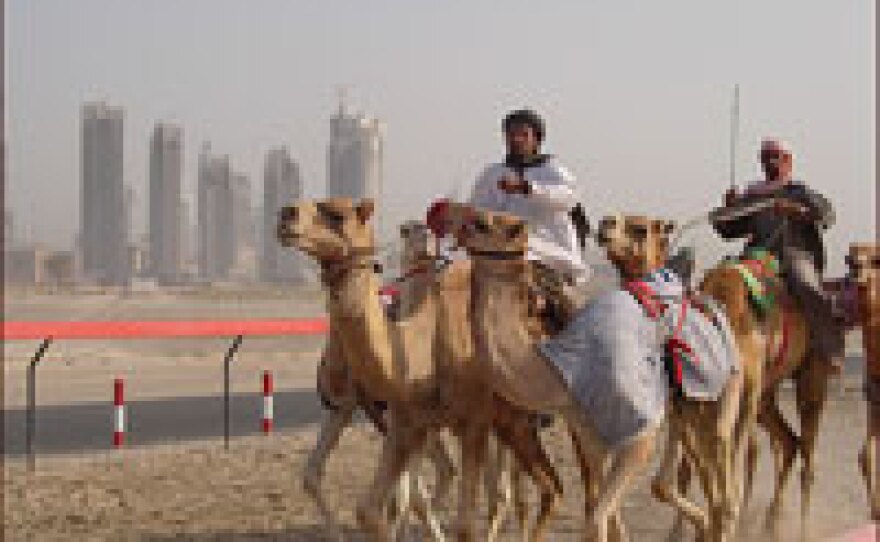


Camel racing is an ancient sport that remains highly popular among the Arabs of the Persian Gulf, but it's been criticized by human rights groups because of the jockeys: young boys secured to the saddles with Velcro. Now robot jockeys are transforming the traditional sport.
At the Golden Camel Sports Equipment Trading Shop on the edge of Dubai, the robot jockeys sell for about $500 apiece in a variety of colors. They've been used at the adjacent racetrack for about a year.
The manufacturers have pirated a far more expensive Japanese model by taking a 14.4-watt power drill and replacing the drill bit with a one-and-a-half-foot long riding crop and wireless receiver.
When Hamayun, a 23-year-old Afghan salesman, presses a button on a plastic key chain, the robot jockey's single arm spins furiously, whipping the air with the riding crop.
The robot jockeys are a solution for what was one of camel racing's most objectionable practices. Until recently, small boys from Pakistan and Bangladesh were used as camel jockeys, secured to the saddles with Velcro — a practice that was condemned by human rights groups.
Now, Emirati camel trainers like Mohamed Hamed Ali El Wahidi embrace the use of robot jockeys. He says they have transformed camel racing by taking away the worry that children will fall off the camels. The robot jockeys also have improved race times dramatically because the 10-pound robots are much lighter than the little boys.
At the broad, sandy racetrack, camels stand in groups of four and five. The sight of the huge beasts, next to the trainers and handlers in their long white robes and headdresses, contrasts sharply with the skyscrapers Dubai, which gleam in the distance like a desert mirage.
Suddenly, the trainers leap into waiting jeeps and speed off on a road parallel to the racetrack. They leave behind handlers who clap and whistle, prompting the camels to start a clumsy gallop down the track as a training run for an upcoming race. There are no riders perched on the camels' humps. Instead, the cylindrical robot jockeys are strapped to their saddles.
But there are still some kinks to work out. For one, camels can be uncooperative. During the training run, one camel — robot in tow — broke off from the pack and sprinted the wrong way down the track.
Several screaming handlers chased after the runaway camel, running barefoot in the sand.
Copyright 2022 NPR. To see more, visit https://www.npr.org. 9(MDAzMjM2NDYzMDEyMzc1Njk5NjAxNzY3OQ001))







